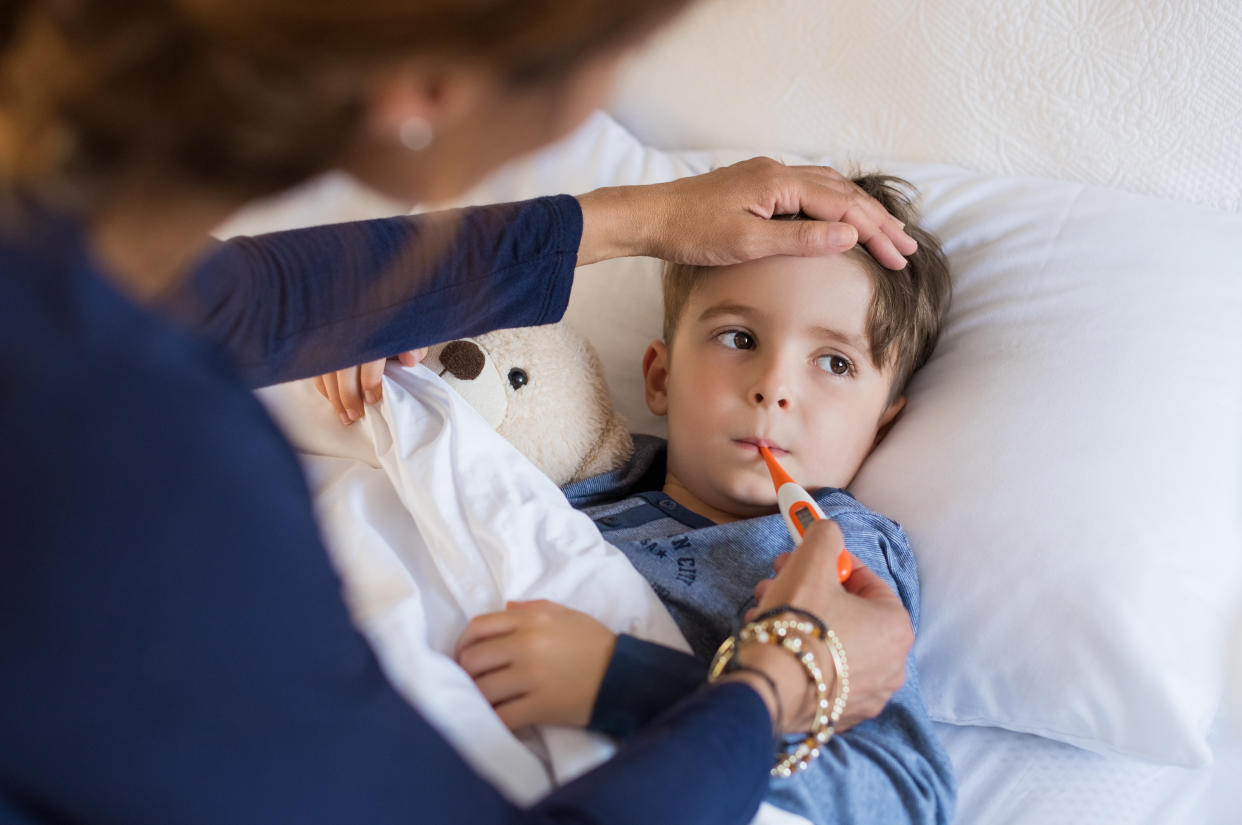Norovirus strikes 60 schools - here’s what to do if your child becomes ill

Students at around 60 schools across the north-east of England have been “struck down by norovirus”.
Public Health England (PHE) revealed dozens of pupils are being sent home with symptoms of the “winter vomiting bug” or flu.
Certain schools have even had to be “deep cleaned” to help stem the spread of the infection, the BBC reported.
READ MORE: Norovirus forces a primary school to shut after 100 children fall ill
PHE data released yesterday that reveals norovirus rates are 26% higher than normal for this time of year.
Between October 28 and November 10, 332 cases of the highly-contagious bug were confirmed in England and Wales alone.
PHE did not specify exactly how many schools have been affected or where they are.
Dr Gayle Dolan, from Public Health North East, said: “If you are well continue activities as normal, but if you are unwell it is important to stay away from school or work until you are better.
“If you have diarrhoea or vomiting that is 48 hours after you have had symptoms and if you have flu it is until you are feeling better.
“We expect viral illnesses of this kind to circulate in schools and the community at this time of year, and have been providing advice to parents and schools to help reduce the spread of infection.”
What is norovirus?
Norovirus causes the lining of the gut to become inflamed, preventing it from working as it should. As a result, infected people endure watery diarrhoea, as well as vomiting and nausea.
The pathogen spreads very easily from person-to-person, which often leads to outbreaks in places were large groups gather together, like schools or hospitals.
Although the virus can strike at anytime, it is most common in the winter months, with around half of cases occurring between December and February, according to the Centers for Disease Control and Prevention (CDC).
READ MORE: Norovirus is on the rise
While it is not entirely clear why this is the case, winter is thought to cause more people to huddle indoors, enabling norovirus to spread, Channel 4 reported.
Low temperatures and a lack of sunlight may also slow the rate the virus breaks down.
Norovirus spreads when small particles of vomit or feaces from an infected person enters another’s mouth, NHS Inform reports.
This may come about by inhaling the breathe of a patient, touching contaminated objects or eating food handled by someone carrying the pathogen.
Symptoms typically appear between one and two days after a person catches the infection. They are then most likely to pass the virus on from when their symptoms start to 48 hours after they pass.
Although unpleasant, norovirus is rarely serious, with most just having to rest at home while the infection runs its course.
How should you treat norovirus?
It is important to drink lots of water to replace the fluid lost via vomiting and diarrhoea.
Paracetamol can help to relieve any aches and pains, another common symptom of norovirus.
If they feel up to eating, patients can nibble on plain food, like pasta and bread.
Rehydration sachets can help if they are showing signs of dehydration, like a dry mouth or dark urine.
Anti-vomiting and diarrhoea medication may also be recommended by a pharmacist or GP.
While most cases do not require medical attention, patients should seek advice if they feel dizzy, lose consciousness or stop producing urine, all signs of severe dehydration.
NHS Inform recommends people call NHS 111 rather than spreading the infection by going to their GP right away.
Bloody diarrhoea, an inability to keep anything down and a fever above 38°C (100°F) should also raise alarm bells.
And patients should seek help if their symptoms do not pass in a few days, if they have recently been to a country with poor sanitation or if they have a serious condition, like kidney disease or a weak immune system.
The symptoms and treatment advice are similar for both children and adults. In youngsters, also look out for green vomit, pale or mottled skin, and pale hands and feet.
READ MORE: More than 270 passengers sickened by norovirus on Royal Caribbean cruise
Patients should stay off school or work until at least 48 hours after their symptoms have passed.
To prevent norovirus spreading, they should also frequently wash their hands with soap and water, particularly after using the toilet or preparing food.
Surfaces should also be disinfected, as well as bedding and clothing washed in their own cycle.
It is also important not to share any cutlery or towels while ill.
Norovirus is not the only pathogen that causes gastroenteritis, making it tricky to monitor.
Inflammation of the gut lining can be caused by accidentally consuming a host of bacteria or viruses, which also spread between people or contaminated surfaces.
One in five people in the UK are said to develop gastroenteritis every year, Bupa statistics show. Norovirus or food poisoning is usually to blame in adults, according to NHS Inform.
Children are more likely to develop the similar rotavirus, with almost every child in the world suffering by the time they turn five, according to Difference.guru.
The main difference between the two is who they infect. Unlike rotavirus, norovirus infects anyone of any age.
Nonetheless, around 200 million children under five worldwide are thought to catch norovirus every year, according to the CDC.


